Leadership & Committees
Co-Directors
Dallas Swendeman, PhD, MPH
UCLA
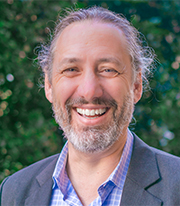 Dallas Swendeman is an applied social and behavioral scientist whose work focuses on multi-level interventions at the intersection of empowerment, prevention, self-management and mobile and social media technologies. Dr. Swendeman has multi-disciplinary training in psychological and medical anthropology, sociology, organizational studies, epidemiology and community health sciences (public health).
Dallas Swendeman is an applied social and behavioral scientist whose work focuses on multi-level interventions at the intersection of empowerment, prevention, self-management and mobile and social media technologies. Dr. Swendeman has multi-disciplinary training in psychological and medical anthropology, sociology, organizational studies, epidemiology and community health sciences (public health).
Over the past 20 years, he has led and supported projects developing, testing, adapting and scaling up evidence-based interventions for HIV prevention, substance abuse, self-management and empowerment with youth, sex workers, and persons living with HIV. More recently, Dr. Swendeman's work has focused on mobile health ("mHealth") using text-messaging, interactive voice response, smartphone applications and social media for research and intervention. In particular, his work explores mixed-methods research and context sensing mobile technologies with adolescents and parents, mobile applications to support home visiting community health workers to address pre- and post-natal support and for sex workers around HIV/STD prevention. His work has been conducted with community-based partners in the U.S., India, and South Africa.
- Associate Professor In-Residence, Psychiatry and Biobehavioral Sciences, David Geffen School of Medicine
Ushma Upadhyay, PhD, MPH
UC San Francisco
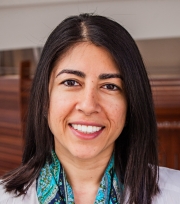 Ushma Upadhyay, PhD, MPH, professor in the UC San Francisco Department of Obstetrics, Gynecology and Reproductive Sciences, is based at the Advancing New Standards in Reproductive Health Program at UCSF's Bixby Center for Global Reproductive Health. Her work encompasses two overarching themes: the effects of women's empowerment and gender equity on reproductive health and improving access to contraception and abortion care. Her current research focuses on understanding and documenting the impact of state-level abortion restrictions on women's lives.
Ushma Upadhyay, PhD, MPH, professor in the UC San Francisco Department of Obstetrics, Gynecology and Reproductive Sciences, is based at the Advancing New Standards in Reproductive Health Program at UCSF's Bixby Center for Global Reproductive Health. Her work encompasses two overarching themes: the effects of women's empowerment and gender equity on reproductive health and improving access to contraception and abortion care. Her current research focuses on understanding and documenting the impact of state-level abortion restrictions on women's lives.
She also has a National Institutes of Health K01 Award to study gender-based power and masculinities among young men and women and its effect on contraceptive use. Dr. Upadhyay's research interests also focus on measures of women's empowerment and assessing its influence on contraceptive use, abortion decisions and fertility. Dr. Upadhyay has developed and validated the Reproductive Autonomy Scale to quantitatively measure the power to decide about and control matters related to contraceptive use, pregnancy and childbearing, which researchers can incorporate into interview assessments in a variety of evaluations and research contexts.
Associate Directors
Melissa Smith, MD
UC Santa Barbara
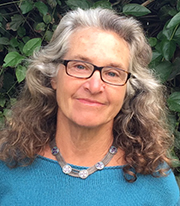
Melissa Smith, M.D., is a family medicine physician who has worked in primary care clinics in low-income communities in the US and Central America for three decades. Dr. Smith is the Director of Health Equity Initiatives at UC Santa Barbara, where she co-teaches a seminar on Community-based Participatory Research on health disparities, and is involved in collaborative efforts to address health concerns of historically marginalized communities in Santa Barbara County. She is also a member of UCGHI’s Black Lives Matter Task Force.
Dr. Smith has developed culturally sensitive training programs for community health workers and midwives in Nicaragua and Guatemala, and has been engaged in a Participatory Action Research project focused on maternal health in Mexico. She has served as medical editor and writer for Hesperian Health Guides, who produce widely used public health manuals on community health and empowerment. Dr. Smith is lead author of Hesperian's book, Health Actions for Women: Practical Strategies to Mobilize for Change, which is now translated into six languages and accessed by people around the globe on Hesperian’s open-source digital platform.
Dr. Smith obtained a BA from Harvard University and an M.D. from the University of Washington.
Jennifer A. Wagman, PhD, MHS
UCLA
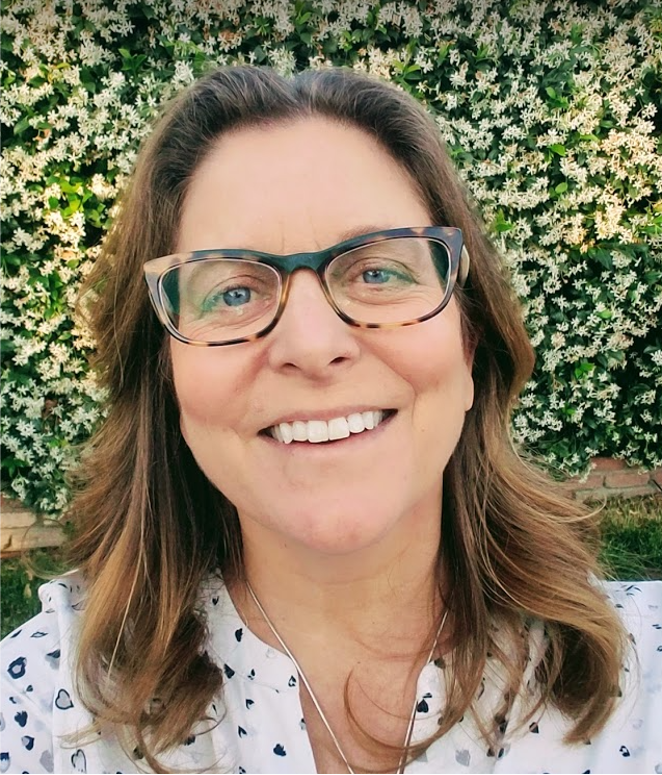 Jennifer A. Wagman, PhD, MHS is an Associate Professor in the Fielding School of Public Health in the Department of Community Health Sciences at UCLA. She earned her Master of Health Science in International Health and PhD in Reproductive, Perinatal, and Women’s Health from the Johns Hopkins Bloomberg School of Public Health. Dr. Wagman completed postdoctoral training at the UC San Diego School of Medicine in the Substance Use, HIV and Related Infections Training Program.
Jennifer A. Wagman, PhD, MHS is an Associate Professor in the Fielding School of Public Health in the Department of Community Health Sciences at UCLA. She earned her Master of Health Science in International Health and PhD in Reproductive, Perinatal, and Women’s Health from the Johns Hopkins Bloomberg School of Public Health. Dr. Wagman completed postdoctoral training at the UC San Diego School of Medicine in the Substance Use, HIV and Related Infections Training Program.
Dr. Wagman has been working in the field of global public health for the past 25 years and her work spans five intertwined domains. These include: (1) Conducting quantitative and qualitative research on violence against women (VAW), reproductive health and rights and risk for HIV and other sexually transmitted infections (STI). (2) Looking at the epidemiology of intimate partner violence (IPV) and its relationship with HIV infection, STIs and alcohol and substance use in global, resource poor settings. (3) Conducing implementation science to adapt, assess and scale-up evidence-based interventions for global prevention of HIV infection, IPV and alcohol and substance use problems. (4) Addressing social disparities through research aimed at increasing health services access and prevention of STIs and violence among pregnant women in the U.S. who are uninsured, undocumented, low-income and/or substance users. (5) Conducting collaborative research on sexual assault and dating violence among college students in the U.S. and globally.
Associate Director
Sean Arayasirikul, PhD
UCI
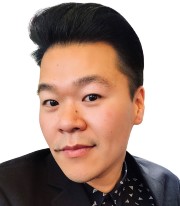 Dr. Sean Arayasirikul (they/them) is an Associate Professor In-Residence in the Department of Health, Society, and Behavior (DHSB) at UCI’s Program in Public Health (PPH). They earned their PhD in Medical Sociology from UCSF. Dr. Arayasirikul’s research is focused on the following lines of inquiry: 1) the examination of health disparities and inequity among sexual and gender minoritized (SGM) communities, particularly trans women and BIPOC communities; 2) the development and implementation science of systems-level, digital health interventions; and 3) liberatory applications of participatory approaches to surveillance and data democratization. They are the PI of an NIAID New Innovator Award (DP2) to measure intersectional stigma among SGM communities of color in the national House and Ballroom Community. As a RWJF Interdisciplinary Research Leader, their community-engaged research project called, "Not One More: Violence at the Intersection of Structural Racism and Transphobia & the Imperative to Value the Lives of Trans Women of Color," will use ecological momentary assessments (EMAs) to measure, characterize, and visualize the magnitude and types of intersectional violence that transgender women of color experience situated in time and place. We will develop a data democratization tool to engage public health and policy stakeholders to increase protections and structural accountability for trans and gender expansive communities.
Dr. Sean Arayasirikul (they/them) is an Associate Professor In-Residence in the Department of Health, Society, and Behavior (DHSB) at UCI’s Program in Public Health (PPH). They earned their PhD in Medical Sociology from UCSF. Dr. Arayasirikul’s research is focused on the following lines of inquiry: 1) the examination of health disparities and inequity among sexual and gender minoritized (SGM) communities, particularly trans women and BIPOC communities; 2) the development and implementation science of systems-level, digital health interventions; and 3) liberatory applications of participatory approaches to surveillance and data democratization. They are the PI of an NIAID New Innovator Award (DP2) to measure intersectional stigma among SGM communities of color in the national House and Ballroom Community. As a RWJF Interdisciplinary Research Leader, their community-engaged research project called, "Not One More: Violence at the Intersection of Structural Racism and Transphobia & the Imperative to Value the Lives of Trans Women of Color," will use ecological momentary assessments (EMAs) to measure, characterize, and visualize the magnitude and types of intersectional violence that transgender women of color experience situated in time and place. We will develop a data democratization tool to engage public health and policy stakeholders to increase protections and structural accountability for trans and gender expansive communities.
Dr. Arayasirikul is deeply committed to teaching and mentorship as a community-grounded scholar, having come from the communities they collaborate with and serve in their research. They are especially proud to be the MPI of SHINE Strong (www.weshinestrong.org), the first NIMH-funded undergraduate training program to develop the next generation of HIV prevention scientists with expertise in trans and nonbinary population health. They are a Co-Investigator on research projects to advance health equity among trans women in Nepal, New Orleans, Louisiana, and young SGM men in Brazil.
Center Coordinator
Taylor Thomas, MPH, MA
UCLA
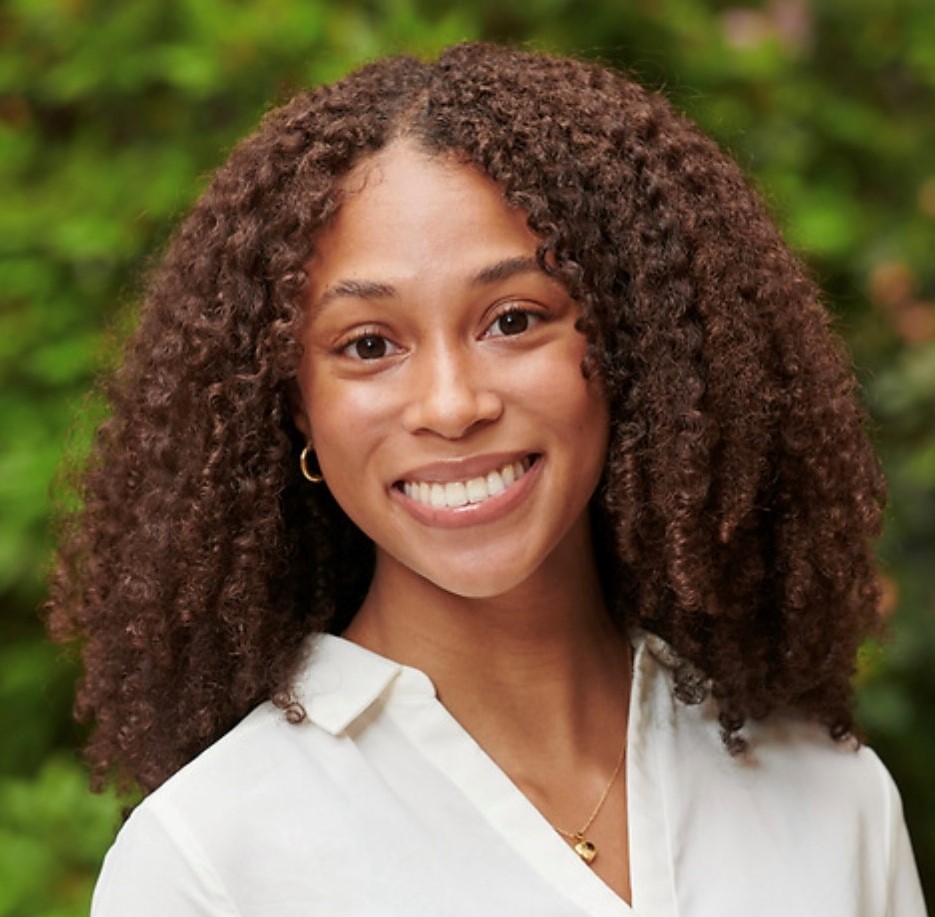 Taylor Thomas, MPH, MA, is the Center Coordinator for the Center for Gender and Health Justice and the Program Coordinator for Wagman Lab in the Fielding School of Public Health-Community Health Sciences Department. Taylor completed her dual master’s program at UCLA, earning her MPH from Feilding’s Community Health Sciences Department and an MA from the International Institute’s African Studies Department. During her program, Taylor was an active fellow in both the Maternal and Child Health Fellowship Program and the Leadership Education in NeuroDiversity Fellowship Program. She is passionate about neurodiversity advocacy, sustainability, and the intersection of afro-indigenous medical systems and allopathic medicine. Taylor currently focuses on the prevention of violence and the promotion of sexual and reproductive health and rights through her coordination at Wagman Lab.
Taylor Thomas, MPH, MA, is the Center Coordinator for the Center for Gender and Health Justice and the Program Coordinator for Wagman Lab in the Fielding School of Public Health-Community Health Sciences Department. Taylor completed her dual master’s program at UCLA, earning her MPH from Feilding’s Community Health Sciences Department and an MA from the International Institute’s African Studies Department. During her program, Taylor was an active fellow in both the Maternal and Child Health Fellowship Program and the Leadership Education in NeuroDiversity Fellowship Program. She is passionate about neurodiversity advocacy, sustainability, and the intersection of afro-indigenous medical systems and allopathic medicine. Taylor currently focuses on the prevention of violence and the promotion of sexual and reproductive health and rights through her coordination at Wagman Lab.
